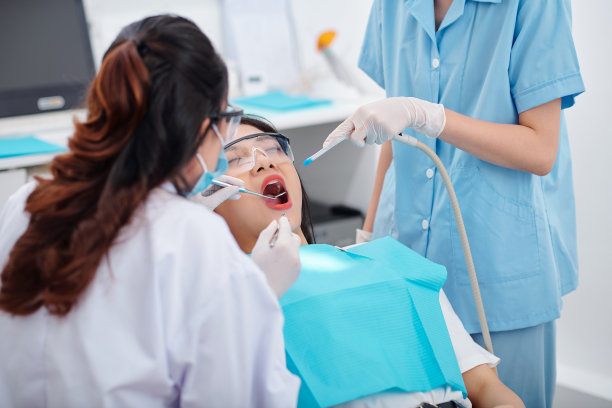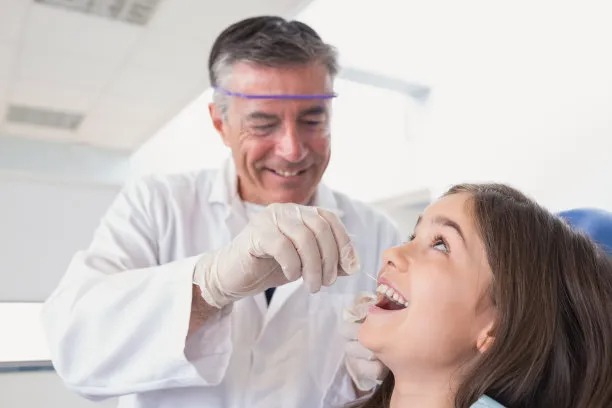Summary: Dental fillings are essential for restoring damaged teeth, but the procedure requires precise precautions to ensure optimal recovery and protection. This article highlights key measures to take before and after the dental filling process. We will delve into four crucial aspects: understanding the procedure, managing post-treatment care, adhering to dietary restrictions, and scheduling follow-up visits. Each section aims to prepare you for a smoother experience and promote swift healing, leading to better dental health and overall well-being.
1. Understanding the Dental Filling Procedure

Before undergoing a dental filling procedure, it’s crucial to gather information about what the procedure entails. Speak openly with your dentist about the type of fillings available, such as composite, amalgam, or glass ionomer. Understanding these options will help you make informed decisions that suit your dental needs.
Following this, inquire about the procedure itself. Getting details such as the expected duration and any discomfort that might be experienced can lessen anxiety and prepare you mentally. It’s also beneficial to communicate any allergies or medical conditions you have, as these factors can influence the filling process.
Lastly, consider scheduling your appointment at a time when you can rest afterward. This will allow you to recover from any local anesthesia or discomfort and avoid unnecessary stress that could complicate your recovery.
2. Effective Post-Treatment Care for Recovery
After the dental filling procedure, taking proper care of your mouth is essential for effective healing. Initially, avoid touching the filled area with your tongue or fingers, as this may disturb the filling material or irritate the surrounding tissue. Instead, allow your mouth to heal naturally, monitoring for any signs of unusual discomfort.
Additionally, it’s critical to follow your dentist’s recommendations regarding medication. They might prescribe pain relievers or suggest over-the-counter options to manage discomfort post-treatment. Always adhere to the dosage instructions for optimal results.
Keeping up with oral hygiene is also vital. While the filled area heals, continue to brush and floss gently but thoroughly, avoiding the newly filled tooth until you receive the dentists approval. This will help maintain dental health and protect against potential infections during the healing process.
3. Adhering to Dietary Restrictions After Filling
Dietary choices can significantly impact the healing process after receiving a dental filling. For instance, it’s advisable to avoid extremely hot or cold foods and drinks for the first few days post-procedure. This helps to prevent discomfort, especially since the filling might be sensitive to temperature changes.
Furthermore, resist the temptation to consume sticky or chewy foods, which can dislodge the filling. Items like gum, caramel, and hard candies can place undue stress on your restored tooth and lead to complications. Instead, focus on softer foods that minimize pressure on the area.
Staying hydrated is essential but ensure that your beverages are at a moderate temperature. Water is always a great choice, while acidic drinks like soda or citrus juices can irritate the filling site and should ideally be avoided during your recovery phase.
4. Importance of Follow-Up Visits for Dental Health
After a dental filling, follow-up visits to your dentist are crucial for monitoring the filling’s condition and your overall dental health. Schedule a check-up within the recommended timeframe, as this allows your dentist to ensure the filling is intact and functioning correctly.
During these visits, feel free to discuss any lingering discomfort or changes you may have noticed since the filling. Addressing these concerns with your dentist promptly can prevent minor issues from escalating into major problems.
Moreover, regular dental check-ups contribute to long-term oral health. Your dentist can provide advice on best practices for brushing, flossing, and dietary habits that will further protect your dental fillings and overall tooth structure.
Summary:
The article highlights the essential precautions necessary for before and after a dental filling procedure to ensure optimal recovery and protection. Key aspects such as understanding the procedure, post-treatment care, dietary restrictions, and importance of follow-up visits are discussed. Proper adherence to these guidelines can lead to better dental health and fewer complications.
This article is compiled by Vickong Dental and the content is for reference only.
Vickong Dental
Vickong Dental is a large medical group established in Hong Kong in 2008 by professors from well-known medical universities in Guangdong and Hong Kong, as well as medical doctors from key national '985' universities (including Master's supervisors and senior professors). The chain of branches brings together expert dentists with PhDs and Master's degrees from Hong Kong and Mainland China, committed to providing high-quality dental treatment.
"Vickong Dental Practices the University Motto of 'Healing and Serving Society,' with a Stable Operation for Sixteen Years. It Has Been honored with Hong Kong Enterprise Leaders's Choice,' and is a Global Trusted Implant Center for the Nobel Implant System. Recommended by Hong Kong Metro Broadcast and Guangdong Television, it Serves Customers from Over Thirty Countries and Regions, Gaining the Trust and Favor of Citizens from the Guangdong-Hong Kong-Macau Greater Bay Area and Surrounding Cities.

Thousands of customers' unanimous praise
The most recognized and highly recommended dental service by customers in the Guangdong-Hong Kong-Macau Greater Bay Area
We Ensure You Receive Detailed Care and Attention Here
Hong Kong standards, Shenzhen prices, Your Trusted English-speaking dentists

Vickong Dental Medical-Grade Instrument Disinfection Process
Vickong Dental Medical-Grade Instrument Disinfection Process

Vickong Dental Chain: A Warm and Comfortable Environment for Treatment






Appointment Hours

Q&A
Why choose Vickong Dental?
Vickong Dental practices the university motto 「Medicine to Benefit Society」, with each branch bringing together highly qualified dentists with doctoral and master’s degrees from Hong Kong and the Mainland, and has maintained seventeen years of steady operation。Recipient of 「2024 Hong Kong Enterprise Leaders Brand」, 「2025 Hong Kong Enterprise Leaders Brand」, a Nobel Biocare Global Trusted Implant Center, and a brand recommended by Metro Radio Hong Kong and Guangdong TV。
To date, we have served customers from more than thirty countries and regions,earning exceptionally high word-of-mouth recognition and trusted recommendations from residents across the Guangdong-Hong Kong-Macao Greater Bay Area and surrounding cities
We have eight major branches in Zhuhai、Shenzhen,and a consultation and service assurance center in Hong Kong,so you can book a free consultation at any time for any questions,which is very reassuring.
If I do not accept the quotation after the CT scan, will I be charged??
No! As long as the actual treatment has not started, you will not be charged any fees.
Will there be any additional charges during the treatment process?
No, there won’t be any additional charges. Before treatment begins, we will clearly explain the treatment plan and its corresponding fees. Only after the patient agrees and signs the consent form will we proceed with the dental service.
Can I pay in Hong Kong dollars?
Yes. Vickong Dental accepts payment in Hong Kong dollars. The amount will be converted based on the exchange rate of the day, and the applicable rate will be clearly communicated to you in advance.
Can I reschedule my appointment at any time?
Yes. Please contact us via **WeChat** or **WhatsApp** as early as possible, providing your original appointment time and details, along with your preferred new date and time slot for rescheduling.













